Are lifestyle farmers really to blame for the soaring cost of agricultural land?
The term 'lifestyle farmer' refers to people who swap an urban existence for rural life, as Oscar Quine reports
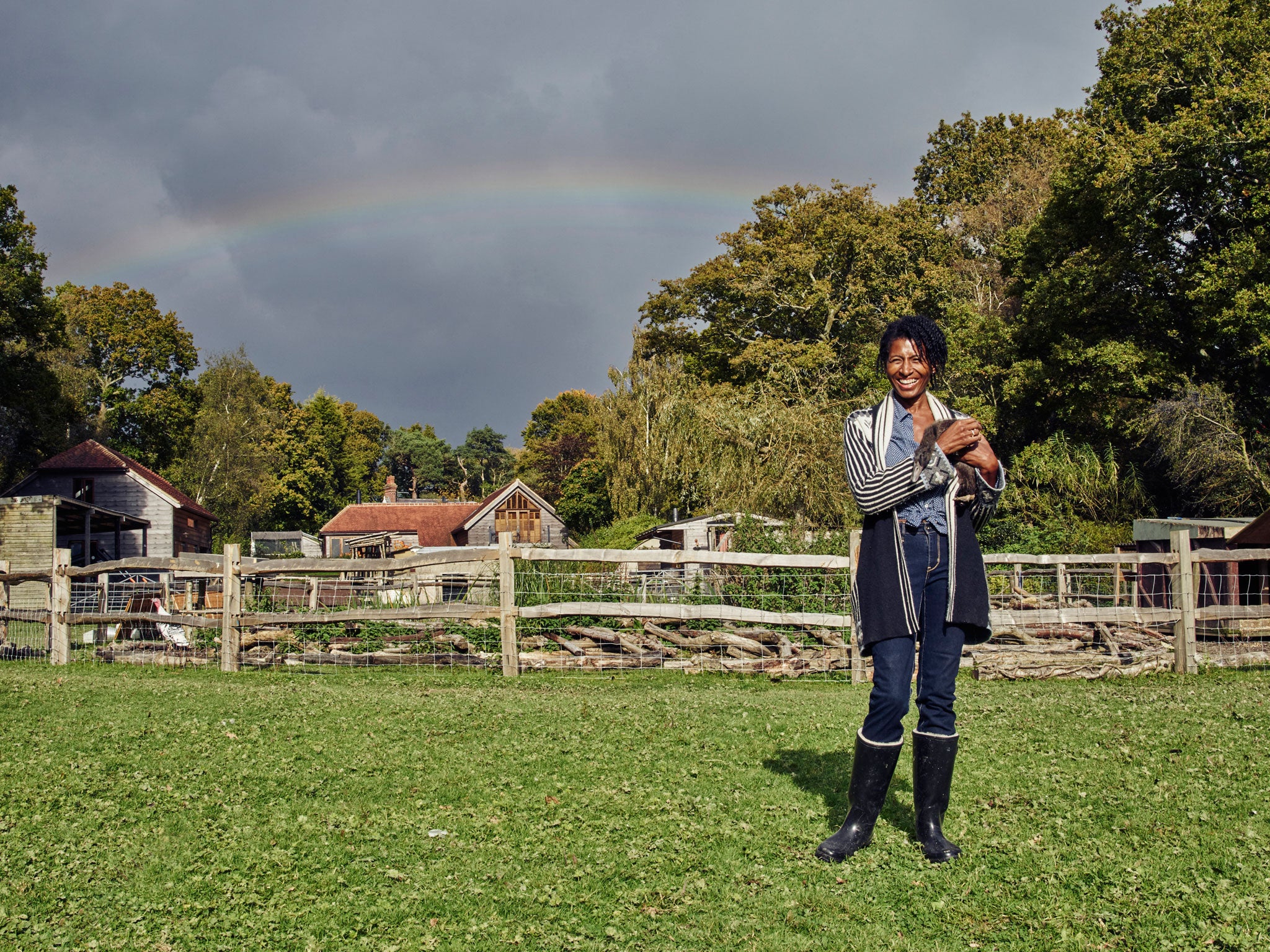
Down at Little Warren Farm, a Doolittlian fanfare is under way. The geese's "Ach-ach-eeking" has caused the turkeys to go "Gah-gah-gah", which in turn triggers a hail of "Neeeh-neeeh-neeehs" from the goats. The llamas, meanwhile, go "Bruuuuuh". Standing beside her custom-built duck pond, Jo Cresswell surveys her land and the motley bunch of animals with which she has come to share it. "It was just meant to be chickens," she says with a sigh. "But I'd look out over the place and think, you can't have a farm without animals."
Some might counter that you can't have a farm without a farmer. Cresswell, 55, is an artist and her husband, Luke, a musician. Together, they bought the 33-acre plot in East Sussex in 2008, moving here from nearby Brighton. Knocking down the concrete pre-fab bungalow that stood on the land, they spent two years building an attractive five-bedroom eco-house clad in cedar. The walls are packed with sheep wool for insulation.
The animals – each has a name – were gradual additions. After a brief stint bee-keeping, Cresswell took on a flock of Indian Runner ducks, comedic critters that ricochet around the yard, long-necked and erect, bwack-bwack-bwacking as they go. "For every male, they recommend five females," says Cresswell. One thing led to another. Next it was a brood of Welsummer chickens, for the "beautiful, chocolate-brown eggs" they lay.
The Cresswells now share the farm with 54, predominantly avian, creatures. "My daughter who'd just moved out said 'Mum, I've heard of the empty-nest syndrome, but you've literally filled the house with birds." Cresswell is, we joke, better described as an accidental farmer. To acquire a llama is one thing. To end up with two llamas, two turkeys, 24 ducks, nine geese, 13 chickens and a couple of goats is quite another.
In trading urban existence for rural life, the Cresswells fit the category of so-called "lifestyle farmer" – a trend for urban folk to turn rural – which is seen to go hand in hand with sharp increases in the value of farmland. Since 2010, good-quality farmland has doubled in value to £12,500 an acre. That's an even steeper rise than that in prime London property over the same period (42 per cent) and represents a better return on investment than from both the FTSE 100 or gold.
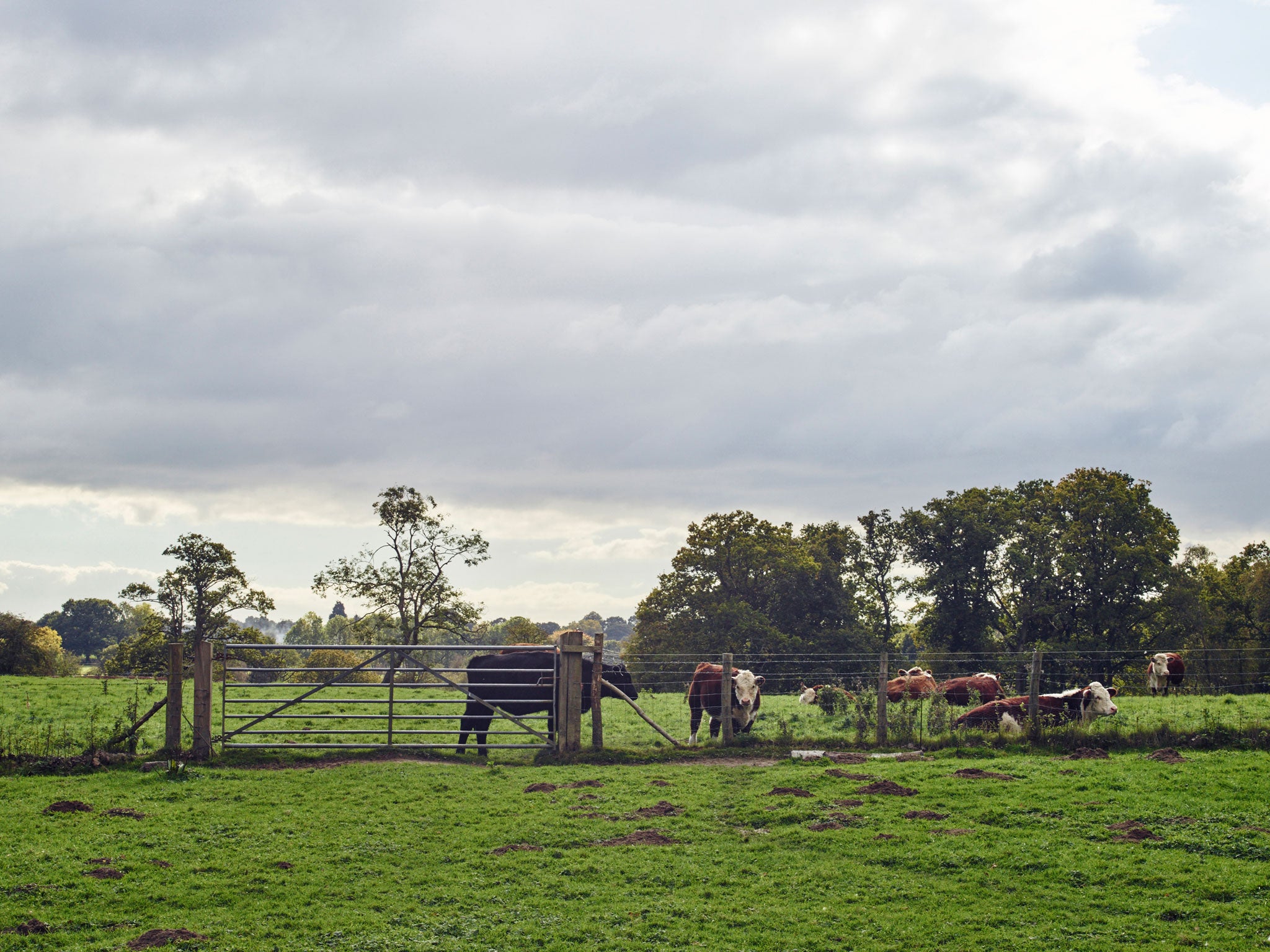
Rolling fields and air fresh with morning dew has long held appeal to those tiring of the claustrophobia and grime of the urban life. As Britain's cities became smog-choked during the Industrial Revolution, the newly minted bourgeoisie purchased or built country and suburban estates. Rather than leave the running to lowly hands, as their forebears had, a pastoral lifestyle was seen as part of the fun. The Cadbury family furnished themselves and the local market with vegetables grown on their estate outside Birmingham, while Austen Chamberlain – statesman, half-brother of Neville and eminent Victorian – cultivated a "scientific farm" in Highbury. Now, as then, the neatest definition of a lifestyle farmer is one for whom profit is not the priority. Alex James, the Blur bassist-turned-cheesemaker, who resides on a 200-acre Oxfordshire farm, provides an exemplar for this latest incarnation, much as that might irk some. The BBC series Jimmy's Farm, in which Jamie Oliver's mate Jimmy Doherty overcame inexperience to set up a farm, introduced many to the idea. Meanwhile, with its focus on self-sufficiency and the production of organic wares, The Good Life cannot be ignored. It is a comparison not lost on Cresswell. "We're not quite Tom and Barbara," she says. "But we do laugh about it."
Yet not everyone is happy with the new economic landscape of the British countryside. In the first quarter of this year, just 44 per cent of the farmland that changed hands was bought by farmers – down from 60 per cent in 2011. Echoing the urban housing crisis, young people are being priced out of farming. A host of initiatives have been set up to remedy this and to try to correct the ageing stock of British farmers.
Lifestyle farmers, it turns out, have made only a small contribution to this seismic shift. The main, insurmountable, problem is a lack of supply. Unlike the national housing stock, more cannot be built. Green belt is being built on and chunks of land are forever falling into the sea. Farmland is not just a finite resource, it is a diminishing one. Last year, says the estate agent Savills, 131,000 acres of farmland was traded, a record low since their records began in 1995. That number compares to the 650,000 acres that changed hands annually at the end of the Second World War in England alone.
Hawkish investors have not helped. As prices continue their dizzying upward spiral, funds and institutions pile in. Last summer saw the largest farmland investment deal in recent years, when the Co-operative sold off almost 40,000 acres, including 15 farms and 100 residential properties, to the Wellcome Trust for a whopping £249m. Last Christmas, the billionaire entrepreneur and investor James Dyson spent £150m acquiring 17,000 acres of land near Nocton in Lincolnshire, giving him a total landholding of 25,000 acres – more than the Queen. Had you bought land for £1 in the year of her coronation, it would today be worth just short of £600.
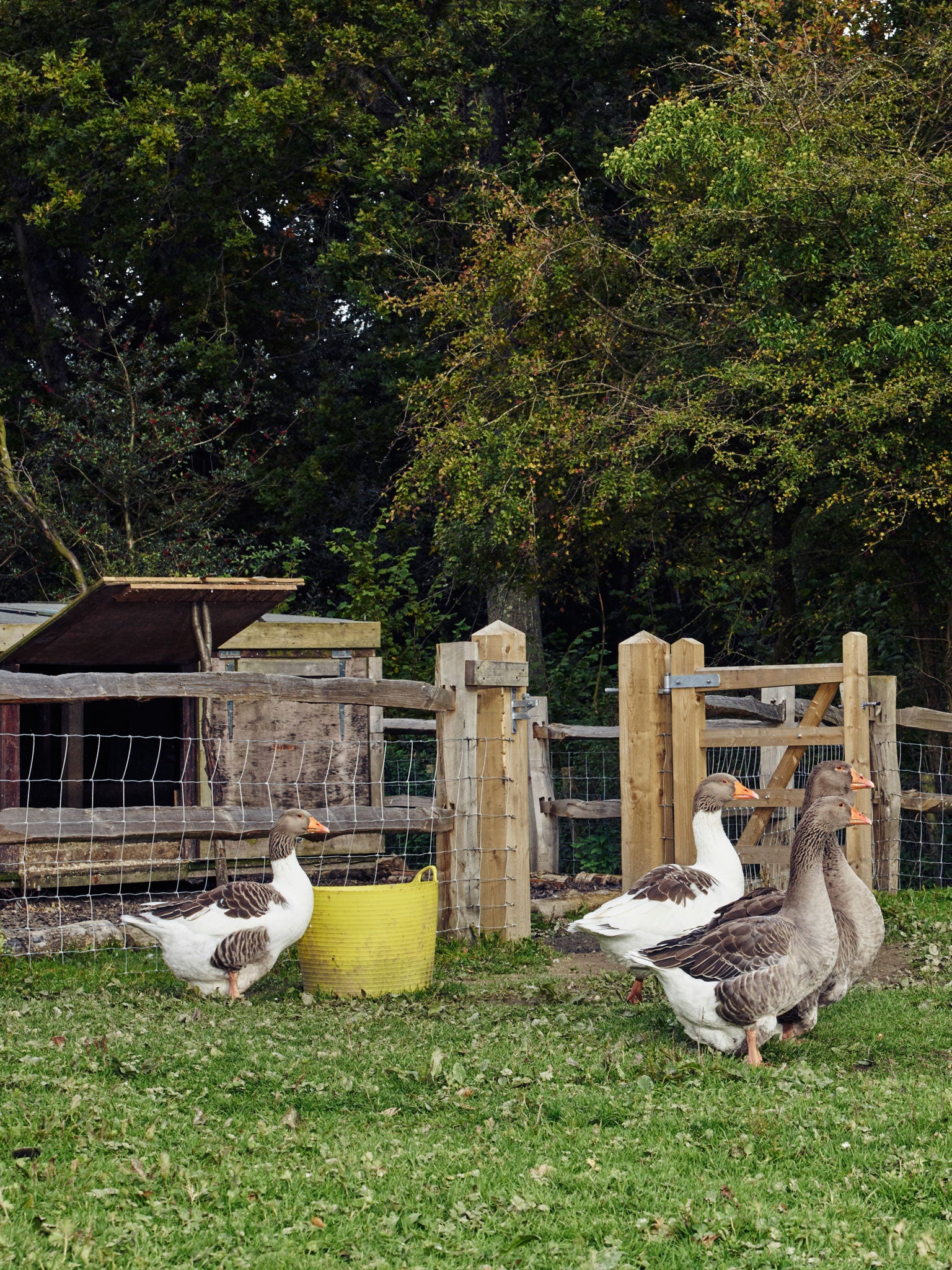
Of course, buyers are also driven by the investment potential of land. After her Cotswolds mansion languished on the market for over a year at £6m, the actress and socialite Liz Hurley upped the price to £9m, threw in an extra 300 acres and promptly sold the lot this summer. She originally bought the estate for £3.3m in 2002. And the outlook, say the estate agents, is rosy: they project a further 40 per cent rise in the next five years.
Alex Lawson, Savills' director of farms and estates, is confident that demand from lifestyle buyers will remain healthy. Space considerations and quality of life are major factors, he says, alongside tax planning, investment performance, and security. What's more, a big house in the country is "an affirmation of achievement". "Perhaps as an island race, it is a characteristic of our culture. An Englishman's home is his castle and many people who have been successful in their business life seek to enjoy the rewards of their labour." Nigel Tuck, a 54-year- > old banker, has lived in his three-bedroom, 16th-century thatched farmhouse on Golland Farm in north Devon since 2006. He has four cottages, two barns, a calving shed, stables, paddocks, a brook and two carp lakes on his 49 acres. He spent more than £500,000 renovating the house with plans to retire there. He hoped to build an organic farm and holiday lets that would sustain him.
Tuck insists tax planning was never a consideration when purchasing the farm but you can see how it could be an attraction for others. Jump through a few hoops and your farmhouse and land are exempt from inheritance tax. Land has become a vehicle for passing on capital untaxed. This encourages a reluctance to sell and a desire to buy. To qualify, land must be deemed to be "occupied for the purposes of agriculture" and the farmhouse to be of a "character appropriate" to the farmland. In practice, many say this is a grey area, judged on gut feeling.
We’re not quite Tom and Barbara from ‘The Good Life’ – but we do laugh about it
Golland Farm is in a desirable location for the lifestyle crowd. Nearby pockets of the South West have become chi-chi outposts of London, while further north the Cotswolds have long held appeal. International private members club Soho House has set up a branch in Somerset. Art gallery Hauser & Wirth opened its fourth gallery here too – after London, New York, and Zurich, with a fifth planned in Los Angeles. Tuck says he can feel the change coming to north Devon. "You start to see the pubs go upmarket," he says. "If you hung around for 10 years you'd see this place transformed."
Yet, he is getting out. The farm is on the market for £1.7m. In the estate agent's particulars it looks immaculate, as if water-blasted. Not a trace of mud. Shortly after moving to Devon, Tuck met and married Helen Mathie, a chartered veterinary physiotherapist, who worked on Team GB's dressage team during the Beijing and London Paralympics. Two children later, and with school fees looming, Tuck returned to work. This limited the amount of time he could put into the farm. "The good life sounds good," he says. "But then you realise, 'wow, there's actually a lot involved'."
Employed by a Swedish bank, he has a desk in London and a desk in Stockholm. The family have their eye on Northumberland. Proximity to Newcastle airport will reduce his commutes. Ideally, the family want more land: they plan to take their flock of 40 Shropshire sheep and seven horses with them.
A stereotypical lifestyle farmer will tend not to be involved in the upkeep of their land. "It's not that often you find someone who's made a lot of money in the City and comes out to to sit on tractor," says Tom Raynham, head of agricultural investment at Knight Frank. "They want a house and land, a good location, and often the sport."
Fair-weather farmers will usually employ outside services on a contract or tenancy basis. Analysts say this makes lifestyle buyers little threat to traditional farming. "In many ways it's fairly neutral," says Richard King, head of research, at The Andersons Centre, a farm business consultancy. "The amount of agricultural land is fixed. It's going to take X-number of farmers to farm and it doesn't really matter who owns it, whether it's a lifestyle buyer who has millions from outside or the farmers themselves."
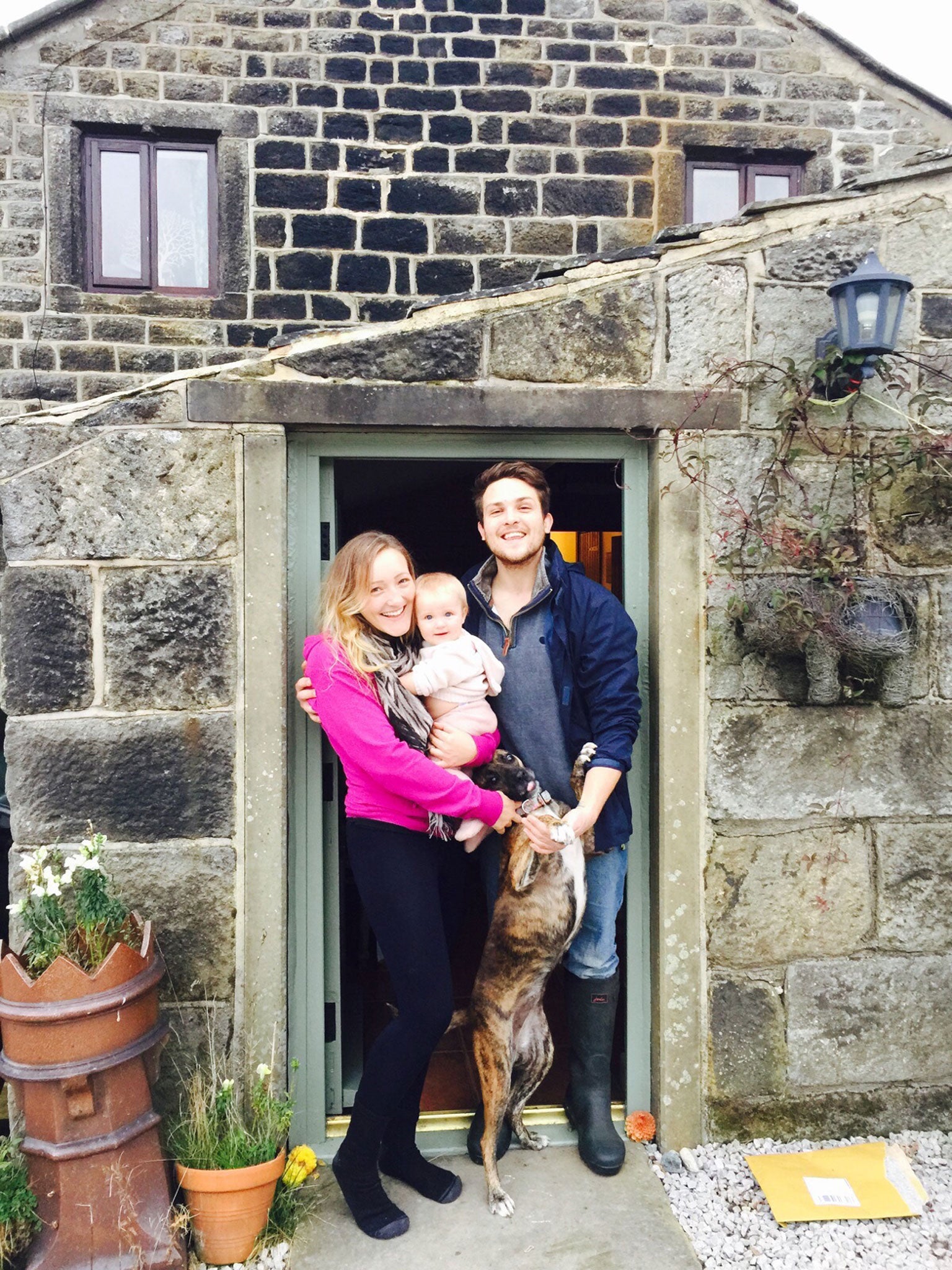
Many argue that the figures which show farmland passing out of farmers' hands are misleading. "We have such a tiny marketplace in this country," says Alex Lawson, director of national farm and estate sales at Savills. "You can have what looks like a considerable swing but in acreage terms it's nothing."
When just 100,000 acres a year is changing hands, big purchases – like that by the Wellcome Trust or Dyson – can skew the picture. Lawson and Raynham point out that commodity prices have taken a hammering in the past couple of years, giving investor buyers the upper hand. The historically low figure of farmland bought by farmers is, they say, a blip that will correct itself as the market picks up.
However, as in the cities, there is little doubt that those with no capital are left struggling. The National Fed- eration of Young Farmers Clubs' (NFYFC) has used DEFRA funding to implement a matching service – bringing together landowners with young farmers in need of land. A "More Than Tractors" campaign is under way to "manage expectations" among the young rural community over land ownership. "You could be a commodity trader, an animal nutritionist, an agronomist, a vet, or an agricultural adviser. It is a big industry with lots of opportunities," said a spokesperson.
One farmer's daughter tells me she had to take a job in rural administration after her father left the family farm to her brother. "If you're not inheriting a farm it's basically impossible to start up because of the high prices," she says.
Some are more optimistic. In splitting his time between a farm-management business and his family's 600-acre Hampshire farm, 28-year-old Ben Robinson exemplifies the young farmer that the NFYFC promotes. "I think it's a massive opportunity," he says. "You don't need to own the business. Costa coffee is a franchise, McDonald's is a franchise, so why not farming?"
The prospect of McFarming leaves many cold. Lynsey Martin, 27, the NFYFC's agricultural and rural issues chair, says that there is a strong impulse to own one's own land, which many young farmers are forced to deny. She is able to farm thanks to her parents, who have given her a plot of their grazing land, but she says it is far too small to be profitable.
"It's an Alan Sugar approach to business," she says. "He started with a market stall in Borough and now he's in the House of Lords. But he's had to pull himself up by his bootstraps to get there. We're trying to start out on the ladder without the credit to go to the bank for equipment or land or stock and without parents behind us, unless we're very lucky."
Echoing the luxury flats that sit empty in city developments, swathes of land bought for investment often go untended. Meanwhile, Martin says she knows one local farmer who spent 15 years scraping together the cash to buy a small plot, all the time watching the land price rise. A major drawback for those who remain renting is that the hefty subsidies associated with farming do not go to them but to their landlords. But Martin echoes others in saying lifestyle buyers are not to blame for pricing out her generation. There are a hundred other, less forgiving, competitors pushing up land prices: namely house builders, green energy providers and hedge funds.
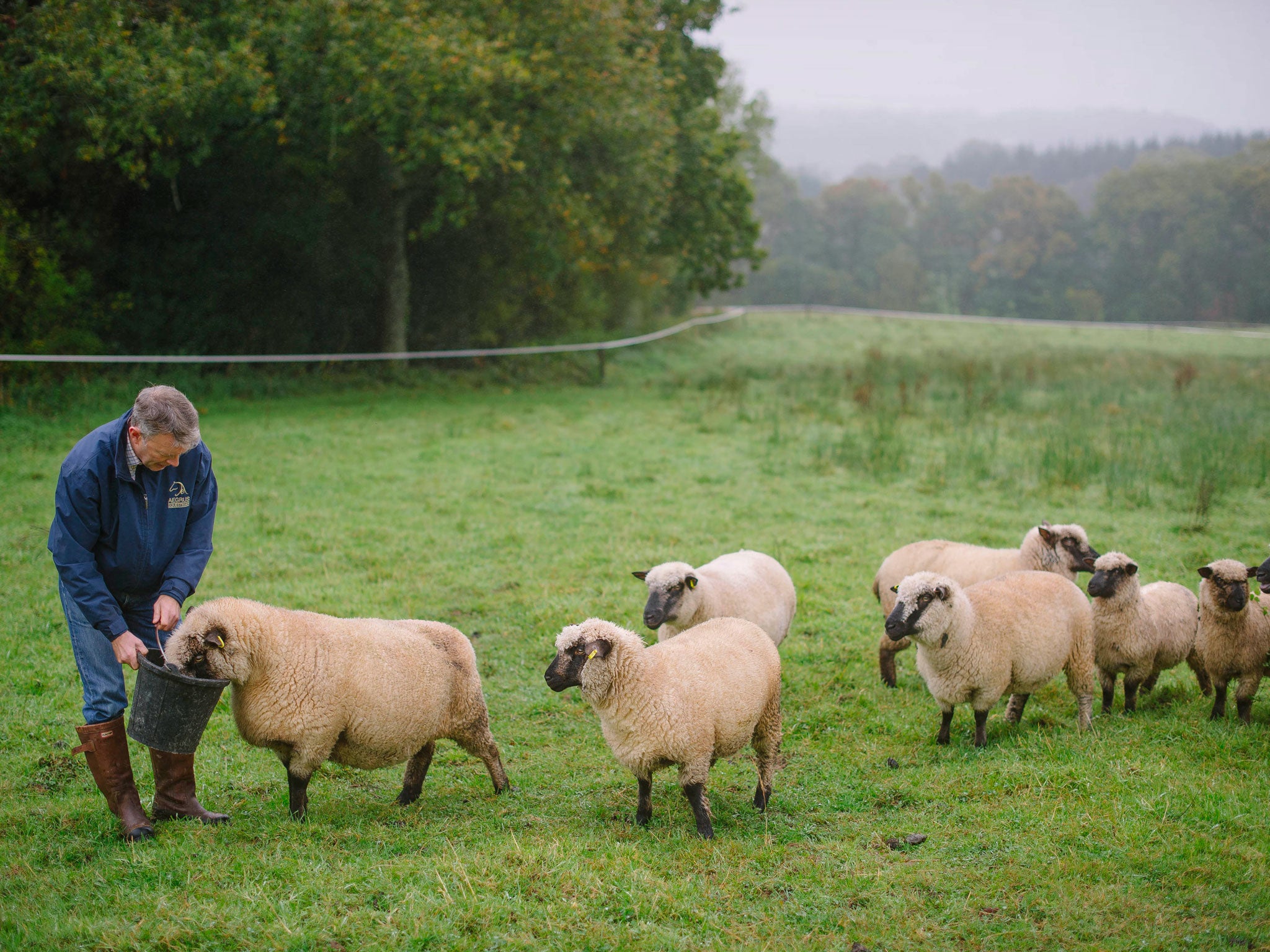
If anything, lifestyle farmers provide an antidote to this industrialised model. Christopher Evans, 26, and his partner April, made enough money in property development to purchase a 10-acre plot of land in Hebden Bridge. It is beautiful, windswept and remote, with a sturdy dry-stone farmhouse at its centre. Over tea with hemp milk, sitting in the bare dining room, Evans tells me his plans for Popples Farm. April, a yoga teacher, and their 7-month-old daughter, River, hope to move in by Christmas. In the new year, Evans will plant a field with a self-supporting, high-density system of orchard fruits and mushrooms. The family will set up tents for volunteers who help with the land to stay in.
The draw to move from Manchester, he says, was to foster a connection with the land. "Up here, you have to be affected by the seasons. There's no way around it, nowhere to hide. You have to know when your food is coming in." A similar sentiment motivates the scores of 20- and 30- somethings who have moved to the Highlands to take up the antiquated Scottish "crofting" method of subsistence farming. Other similar projects are taking place across the country.
Back on Little Warren Farm, two smoke-grey Toulouse geese are, quite literally, at each other's throats. "That's Romeo and Juliet," says Cresswell. We move into the house and sit at the kitchen table. Our discussion of her daily routine is interrupted by the bark of four dogs as big as Shetland sheep and the occasional screech from two macaws perched in a cage. Atop a bookshelf, a duckling sits nestled in an incubator.
Cresswell has baked-apple cake. She echoes Evans in saying the farm gives her routine. She points to the orchard through the kitchen window where she grew the apples used in the cake. There are also quince, cherry, pear and almond trees. She used to keep the chickens here. "You'd look out and they'd all be lined up and you'd think 'what are they doing?' It would remind you: 'oh, they're waiting for their snack before bedtime'."
Tucking the animals in takes Cresswell 20 minutes every evening. Then, she might paint in the studio, take a swim in the swimming pond or switch on the television. Whichever way, she will be done with being a farmer for one more day.
Join our commenting forum
Join thought-provoking conversations, follow other Independent readers and see their replies
Comments